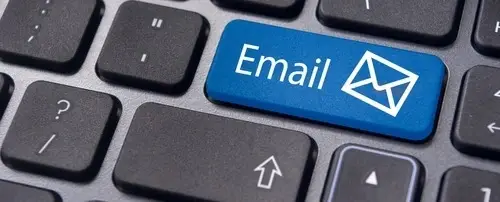Advance Your Career By Writing Better Emails

In a world where we’re often talking about the latest technology that will help us work better, email continues to play a powerful role in our careers. We email people when we’re looking for a job, when we need advice on a tricky work situation, or when we want to learn about interesting news in our professions and organizations. If you want to leverage email to meet new people or get help on a project or problem, writer and digital strategist Alexis Grant shares advice on how to craft emails that people will want to respond to on Mashable:
1. Be Succinct
"There’s nothing that screams “I don’t respect your time” more than a long email, especially if you’re approaching someone you’ve never communicated with before. We’re all busy, and being brief shows you’re in touch with reality and want to make life easier for the person you’re writing to.
Not only are long emails annoying, they’re also proof that you’re not a good communicator — and employers want people who can share their ideas succinctly. This is a double opportunity if you’re trying to land any sort of writing job. Telling your story concisely is a great way to showcase your skills right from the get-go.
If you’re really smart, you might even limit your emails to 50 words."
2. Include a Clear Action Item
"If the person on the receiving end of your email doesn’t know what you want, there’s no way they’ll be able to give it to you — and that means your effort has gone to waste.
So rather than writing “just to introduce yourself,” have an action item in mind, and communicate it clearly. You don’t want to ask too much the first time you contact someone, but you do want to give that person a reason to respond and continue the dialogue.
For example, if your action item is asking for advice, make sure your question is specific enough that the person can actually answer it. Avoid inquiries like, “What advice do you have for new graduates?” or “How’d you get where you are now?”
Instead, ask specific questions that show you’ve followed this person’s work or blog, or done your homework in some way — and the person will be more willing to spend time crafting a helpful reply."
Read the rest of her advice on Mashable.
I love her tips and would add one more: say thank you once you get a reply. There’s nothing worse than offering someone help and never hearing back.

